(Sold without support, shipping costs not included).
Torokusho Certificate N° 3780 - Issuer's name: Ibaraki Prefecture dated Showa 07/26/16 That is July 16, 1951, which corresponds to the highly sought after Daimyo Toroku. Generally reserved for aristocratic families or lineage of the Bushi (Samurai) Family. This Wakizashi comes from an old family directly subordinated to the famous Tokugawa Clan of the Mito Region, which has kept it until now, until registering it at the beginning of this process with the Daimyo Toroku, reserved for respectable families.
Zaimei (With signature) : Name of blacksmith : 備州長船勝光, i.e., Bishu Osafune Katsumitsu (4th generation) – Locatio n: Bizen – Activity: from 1469-1489
Blacksmithing school : Sue-Bizen - Location : Bizen (Central Japan to near Okayama).
Swords period classification : Koto blade, Ryo Wazamono classified, Saijo Saku
Period : Late Muromachi period - Bunmei era 1469-1486
CHARACTERISTICS OF THE BLADE
Total blade length : 55.6 cm
Nagasa : 43.8 cm
Weight : 381 g
Sori : Height : 1.6 cm (deep Sori for a Wakizashi) - Type: Koshizori (deported to Habaki)
Mekugi-ana : Number: 1
Nakago type : Standard – Futsu Gata - Extremity (Nakago-jiri) type : Ha- agari-kuri-jiri - Yasurime (File lines) type: Kiri, Ichimonji (Straight file lines). UBU, original (Nakago unmodified, uncut).
Mune type : Iori Mune
Sugata type : Shinogi Zukuri - Specificities of the blade: 元幅 Motohaba: Approx 3cm, 元重Motokasane: Approx 0.7cm, 先幅Sakihaba : Approx 1.9 cm No-hi (Without Throat)
Jihada type : Ko-mokume (In small wooden veins)
Hamon type : Superb Gunome-Choji, with a lot of Hataraki, Ashi. The Hamon is of Top level as Bizen Choji Banare with penetrating Tobi Yaki, it is an exceptional temper, characteristic temper of the Bizen blades of the Koto period. Bizen blades from this period and especially those with a Choji Banare temper are particularly sought after and have a very strong popularity among collectors. This is why it is quite difficult to find them for sale!
Kissaki type : Chu-kissaki
Boshi type : Midare-komi
Steel type : Tamahagane
Condition and defects : The blade is in good condition with the presence of a blade impact on the Mune and traces of oxidation, 1 very small forge defect (usual Kitae-Ware on old blades) of 2mm, on the Omote side of the Kissaki (not unacceptable) and some scratches due to the age of the blade.
KOSHIRAE
Superb complete Koshirae from the Edo period, with Zaimei elements (signed)
Tsuba : Zaimei (signed 幸度) - Theme: Pilgrim contemplating the Fuji San - Type : Naga-maru-gata (oval), Maru-mimi ( rounded edge), in (Kin) Shakudo in gold. Nara-ha type.奈良派 Like the Fuchi kashira, from the Yokoya School.
Fuchi/Kashira : The Fuchi which is Zaimei (signed 宗雪(花押) and the Kashira are copper and en suite. Theme: Samurai on his horse swimming in the water, representing the famous battle of Ichinotani and the brave Bushi Nasu Yasuhiro with his bow.
Habaki : Habaki in copper covered with gold leaf (in 1 part only) Seppa also covered with gold leaf. (Tokugawa family)
Kozuka/Kogatana : Both are Zaimei. The Kozuka is signed 是楽 Zeraku + Kakihan/Kao - Theme of the Kozuka: 1 Flying Cuckoo in front of a large crescent moon in gold and silver Shakudo.
Menuki : Theme: 2 Roosters on the Omote side and 1 elongated figure with a golden Jingasa, Ura side in Shakudo, also apparently signed.
Ito Maki type : Tsumami-maki (in good condition)
Tsuka : Very good quality and very good condition (some lacks on the Same)
Saya : Very good quality and in good condition. Finish: 黒笛巻き塗り鞘 Kuro Fue-maki-nuri Sen mai kasane koshirae (decoration imitating the barrel of a traditional lacquered flute, alternating more or less thick layers of lacquer, to obtain this particular rendering.) Ex cellent quality of workmanship .
Sageo : In natural silk - Recent


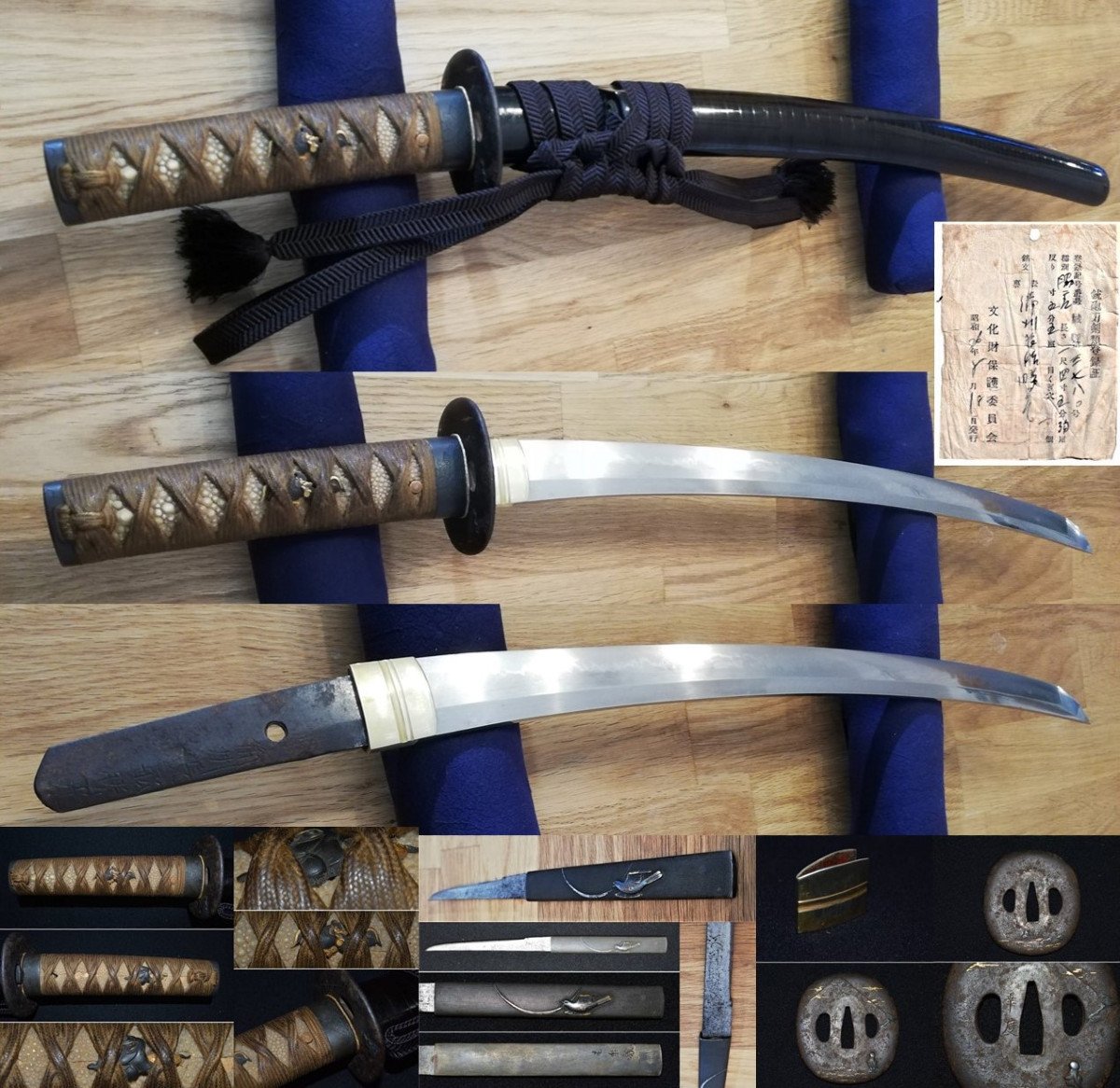

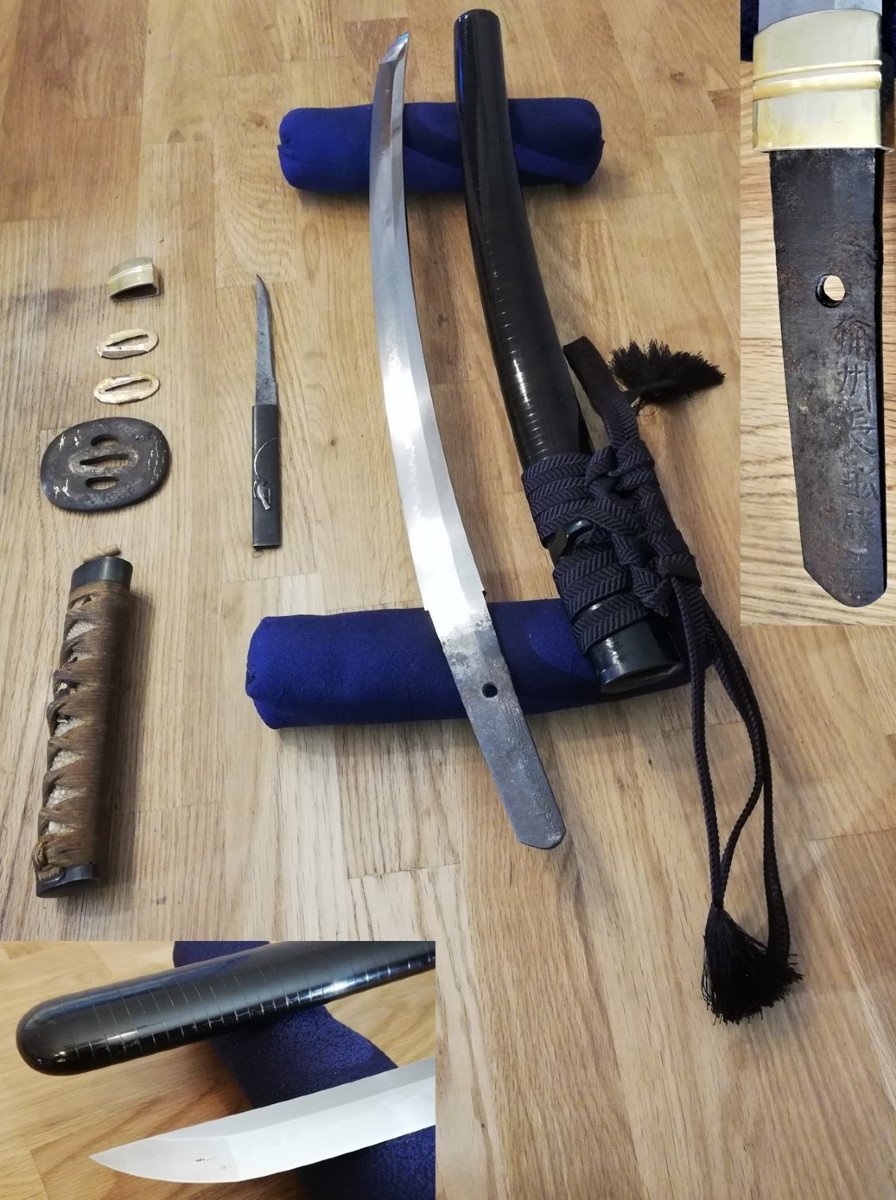
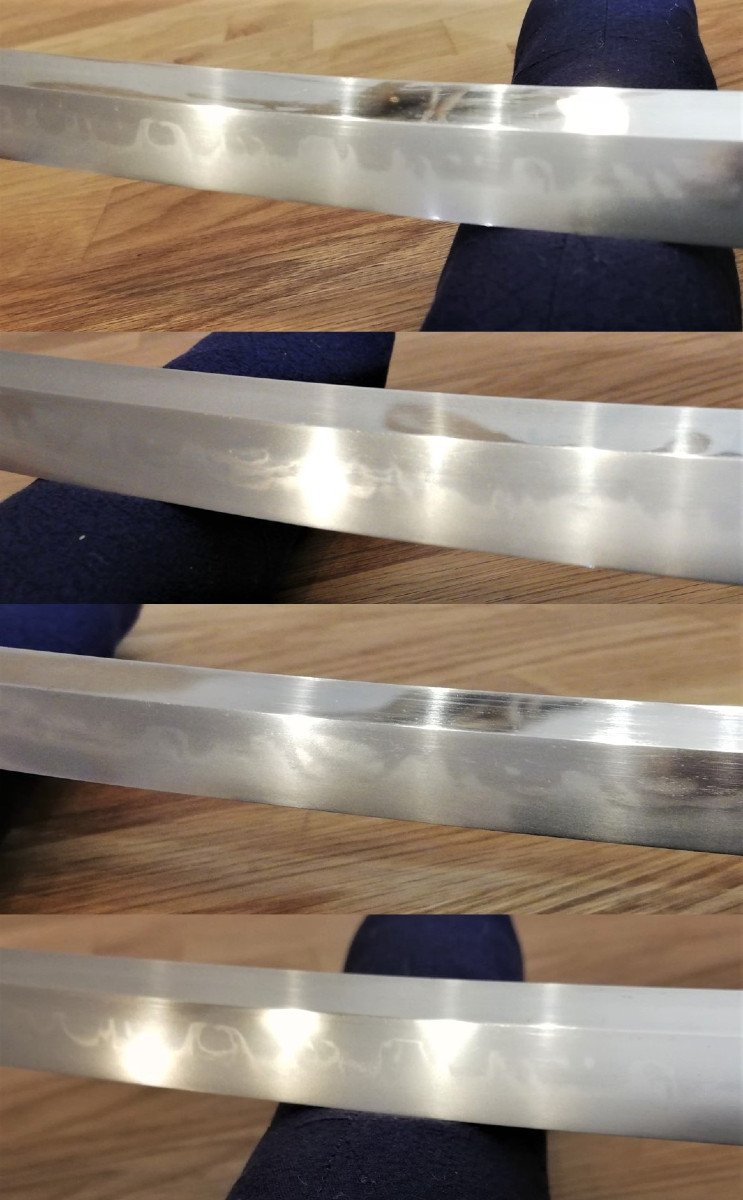
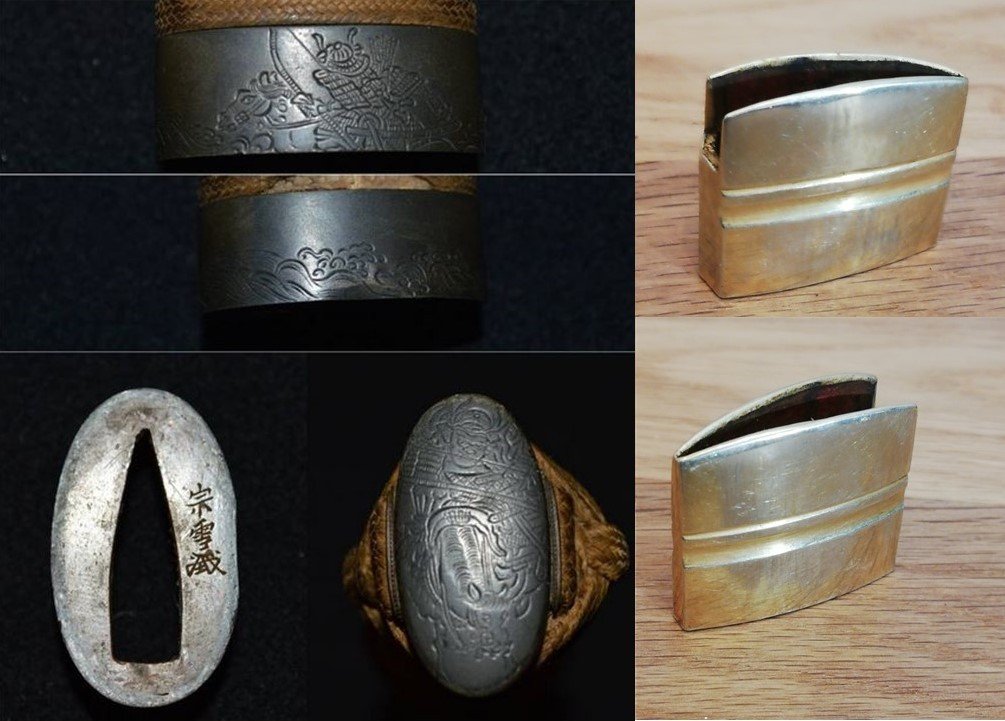
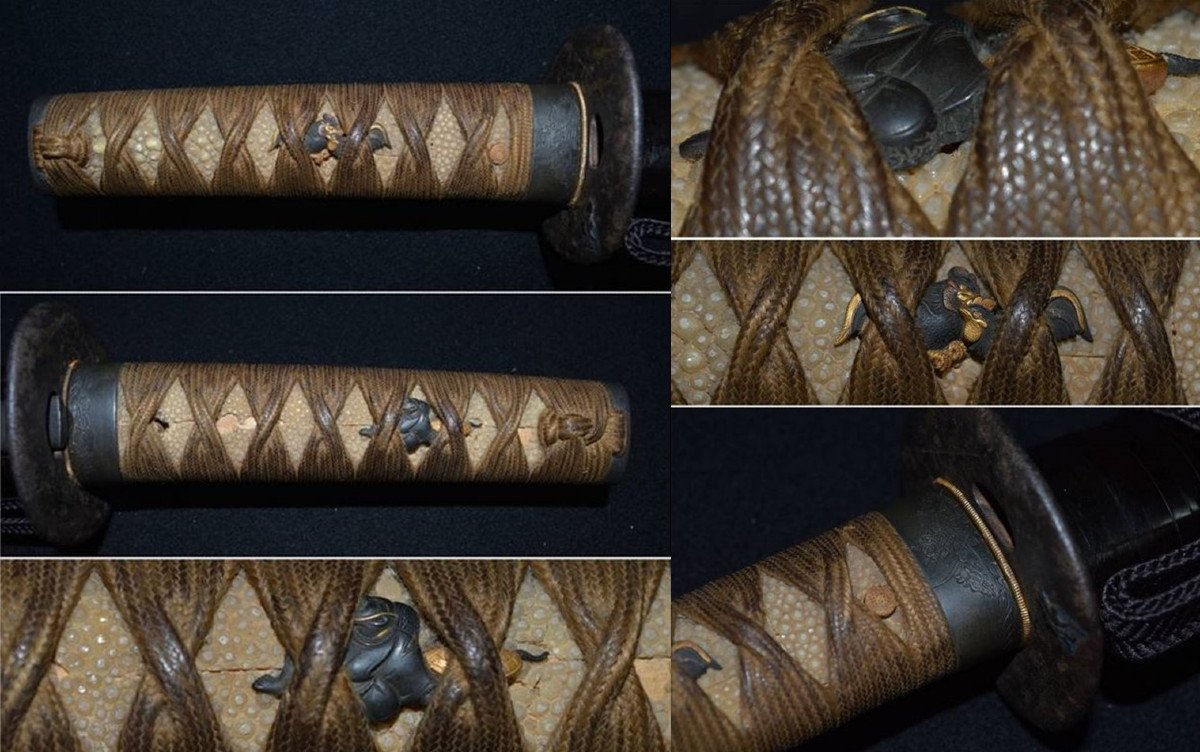
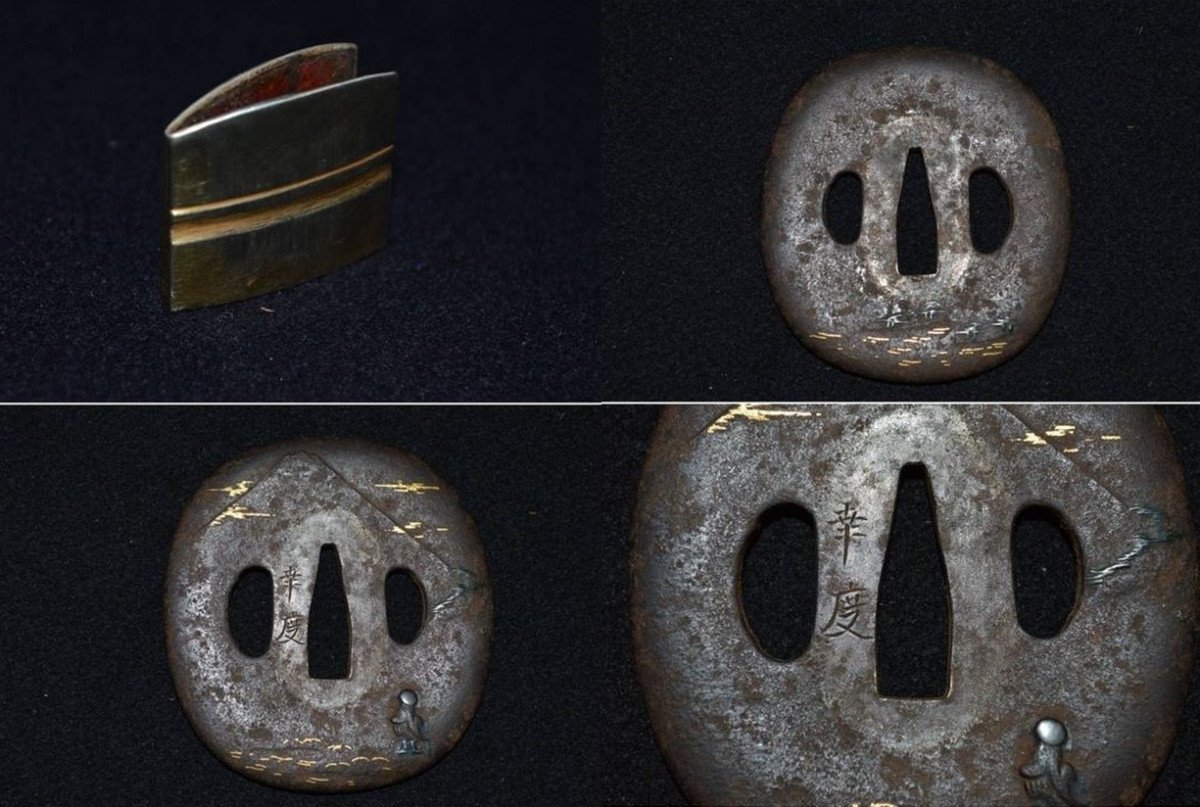












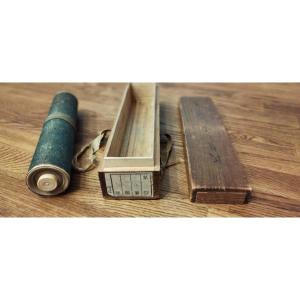





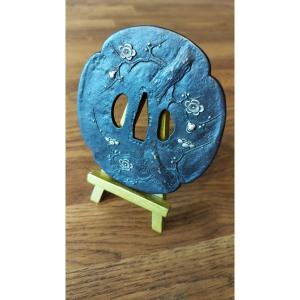

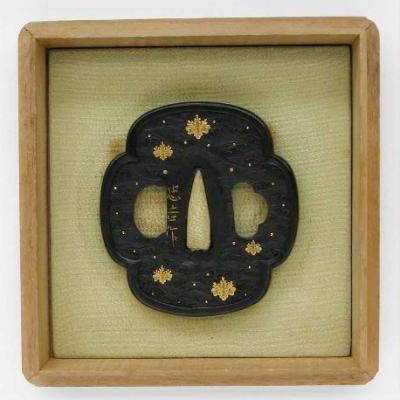
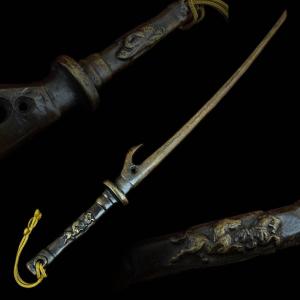
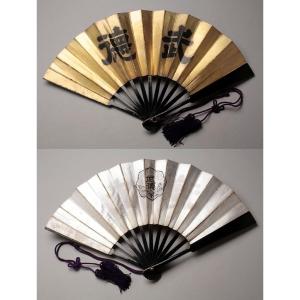
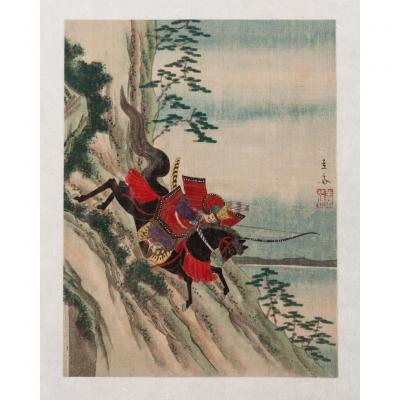








 Le Magazine de PROANTIC
Le Magazine de PROANTIC TRÉSORS Magazine
TRÉSORS Magazine Rivista Artiquariato
Rivista Artiquariato